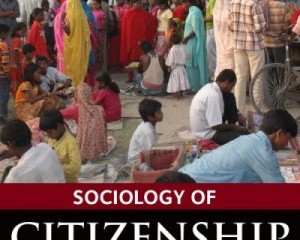
All for English devolution – but what about English democracy?
English devolution has emerged as a prominent feature of the 2015 general election campaign for a number of reasons. One is the ongoing process of devolution that has been taking place across the UK, with the formation of the assemblies for Northern Ireland and Wales, and the Scottish parliament. Another is the aftershock of the 2014 Scottish independence referendum. Throughout this time, England has also solidified as a distinct national political community.
Research indicates that over the past decade or so we have witnessed the progressive “Anglicisation” of the Westminster-based unionist parties. This means that Labour, the Conservatives, and the Liberal Democrats have all become more focused on England, in their political outlook.
But up until now, these parties have sought to avoid the complications and risks of large-scale internal organisational reform in England. They have lacked the appropriate party structures, leadership or explicit policy agendas to properly engage with the complex set of “English Questions”, which have emerged in a post-devolution UK.

Will a constitutional convention refound the British state?
If we are in a constitutional moment, it is time that ‘We the people’ have a right to settle what happens. A Constitutional Convention (CC) is one way to give the people this leading role. A CC is unlikely to refound the British state if it is set up to function as, in effect, an advisory council to the UK Parliament on a relatively narrow range of issues. The UK is in what the lawyer and political philosopher Bruce Ackerman would call a ‘constitutional moment’. There are, obviously, deep and urgent questions about the future of the Union and ‘devolution’. There are related questions about the second chamber of Parliament and the election itself is likely to raise again questions over the voting system. …

‘The first chapter’: Magna Carta and British socialism’s struggle for freedom in late Victorian and Edwardian Britain
The British socialist and labour movements of the late nineteenth- and early twentieth-century chose to view Magna Carta as an important symbol to invoke in their own struggles against the current system and its abuses. The Shadow Education Secretary, Tristram Hunt, recently announced that if Labour are returned in the upcoming general election every school will be required to teach the history of Magna Carta. He is keen to ensure that ‘every school child is taught the medieval past and modern power of this heroic charter’. Unsurprisingly, this declaration caused a variety of responses from those within his own party and those on the left more generally. For a number, Magna Carta should not be celebrated in this way, for …

The general election and constitutional reform: A look at the manifestos
One of the central problems with studying the politics of constitutional change in the UK is that the public does not care about the constitution. Unsurprisingly, constitutional reform does not figure prominently in the party manifestos for the May general election. That does not mean that these documents tell us nothing at all: they show that parties stick with their old policies; that the Conservatives seem to avoid any explicit reference to the constitution; and that all political parties appear to be willing to use the constitution to their own advantage.
In this blog post, I distil some of the constitutional issues in the party manifestos of the three largest parties in Westminster in the last parliament: the Conservatives, Labour and the Liberal Democrats (if there’s time, I will do another post on the smaller parties’ proposals). I define ‘constitutional’ issues as distinct from ‘distributional’ ones, which involve reallocation of resources (and the regulation of behaviour). Constitutional issues are about how decisions are made, not about the outcomes themselves, and should be neutral between, say, more or less progressive (or conservative) substantive policies.

The Cambridge Election Podcast
From the University of Cambridge comes ELECTION, a weekly politics podcast; asking the questions that no one else is in the run-up to the British General Election with the most interesting people inside and outside the political arena. Here below are the eighth, ninth and tenth podcasts.
#8 – Robert Tombs on Britishness, Britain’s place in Europe & the NHS
What makes our politics uniquely ‘British’? Why is there no EnglishIndependence Party? How did the NHS become a sacred cow? And will Britannia ever rule the waves again? David puts these questions to Professor Robert Tombs – historian and author of a new epic history of England – to discover the impact of culture and foreign affairs on British political life. The team also review David Cameronand Ed Miliband’s favourite books, the pros and cons of the fixed-term Parliament, the neglected but extraordinary Nigerian election, and what to expect between now and polling day.

Between Nation-State and Ummah’s Appeal: The contradictions of Islamism in contemporary India and Bangladesh
Generally, Islamists believe in the Universalist concept of Ummah (Islamic community of believers), a supranational or transnational union. The Islamists’ call for unity of the Ummah is based on the belief that Muslims throughout the world should have a sense of solidarity among them cutting across the borders of the nation-state. In this respect, Islamism has justifications to oppose the concept of the nation-state. The Islamist ideologue Maududi (1993) was opposed to the idea of the nation-state, and citizenship based on nationality, considering nationalism to be divisive and as such incompatible with Islam (Maududi 1992).
Conceptually, ‘Ummah’ incorporates the Muslim community in the world as a whole. Therefore, Islamism always tries to claim itself as a ‘mass ideology’ instead of a ‘class one’. For a mass ideology, it asserts the unity of ‘Ummah’ where persons across class, national, linguistic and gender divides can become a part. As an effective tool of political mobilization, the universal concept of Ummah is absolutely crucial in Islamist political ideology. In Laclau’s (1996) terms, one can argue that in Islamist politics, Ummah acts as an ‘empty signifier’ around which different particularities are organized to claim a common universal identity. The idea of Ummah provides the ground for Islamists to take the challenge of rallying the entire Muslim community under a single political project, a project I call Islamist populism.

Against Ad Hocery: UK devolution and the need for consultation, consensus and consideration
Last month the Political and Constitutional Reforms Committee published a report on the future of devolution, in the wake of the Scottish Referendum. Here Dave Richards and Martin Smith pick the report apart and look at the implications for devolution in the UK. The newly published report on the Future of Devolution after the Scottish Referendum is a worthy attempt to bring some order to an often confusing and conflicting debate concerning where devolution goes after the election. Strikingly, the Committee notes that since the September 2014 Scottish Independence Referendum, rapid developments have been made in bilateral ways which pay little attention to the overall nature of the Union. What the Committee has identified is the extent to which devolution is happening in …

Forecasting the 2015 British general election: three weeks out
Forecasters, academic experts, journalists, pollsters and the betting markets have long been forecasting a seriously hung parliament with both major parties not only short of the 326 seats required for an overall majority but even forecast to get less than 300 seats. Meanwhile, an SNP landslide is expected in Scotland which would be hugely damaging for Labour and have major implications for the government formation process. If the forecasters and betting markets are right in their central forecasts then Con+LD+DUP combined will be short of a majority and so a Labour led government should form if they can secure the support of the SNP and probably others, including the Liberal Democrats, will be needed too: a potentially messy and unstable situation but also one where there is sufficient similarity in ideological perspective for policy agreement on plenty of issues.
But there is uncertainty associated with all the forecasts and some forecasters are trying to estimate the extent of that uncertainty, which in turn can be used to calculate probabilities of particular events (hung parliament, largest party, etc.)









